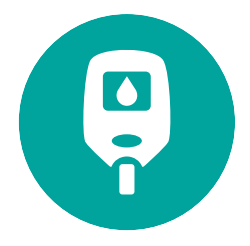Can You Drink Coffee with Kidney Disease?
Is Caffeine Bad for My Kidneys?
It is important to note that caffeine is a stimulant, which can affect some people’s blood pressure. If you have high blood pressure or are at risk for high blood pressure, ask your doctor if it’s safe for you to have caffeine and/or coffee and how much.
The Relationship between Potassium, Coffee, and Kidney Disease
There are about 49 milligrams of potassium in 100 grams of coffee, and 3 cups of coffee is considered high in potassium.2 If you are going to drink coffee when living with kidney disease, keep track of how much you consume so you can factor that into your daily potassium intake. What you add to your coffee, such as cream or milk, can also increase the potassium content.
5 Tips for Enjoying Coffee with Kidney Disease
1. Consume coffee in moderation
2. Factor coffee into your fluid allowance
3. Limit cream and sugar in your coffee
Be mindful of how much sugar you’re adding to your coffee. This is especially important if you have diabetes because limiting added sugars helps better manage glucose levels. Whenever possible, it is recommended that you drink black coffee.
Reading the nutrition label on products can also help you identify how much sugar an item contains and if there are added phosphates. Check the list of ingredients and choose options with no added phosphates and less than 10 percent of added sugars.
4. Consider alternative beverages
Other alternatives to coffee are black and green tea. They have lower caffeine and potassium levels than coffee.
5. Talk to a registered dietitian or physician about your coffee consumption
Enjoying Coffee with Kidney Disease in the Long Term
References
1 Gunnars, Kris. “13 Health Benefits of Coffee, Based on Science.” Healthline, September 20, 2018.
2 Radhakrishnan, Rohini. “Is Coffee High in Potassium?” Medicine Net, April 9, 2021.
3 Chauhan, Veeraish. “Coffee's Effect on the Kidneys.” Verywell Health, July 31, 2020. https://www.verywellhealth.com/what-is-coffees-effect-on-the-kidneys-4147536.
Suggested topics
Medications to Avoid or Adjust If You Have Chronic Kidney Disease
When your kidneys don’t function the way they should, prescription and over-the-counter medications can build up in your blood and may cause additional damage to your kidneys or other parts of your body...

Managing Blood Sugar and Chronic Kidney Disease
If you are living with diabetes and kidney disease, it is important to stay in control of your blood sugar so you can be your healthiest and avoid other...
Managing Anemia and Chronic Kidney Disease: What You Should Know
Did you know that anemia is a common side effect of chronic kidney disease (CKD)? If your kidneys aren’t working the way they should, it could affect your body’s ability to make red blood cells, causing anemia. Managing multiple health conditions...


